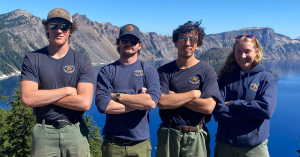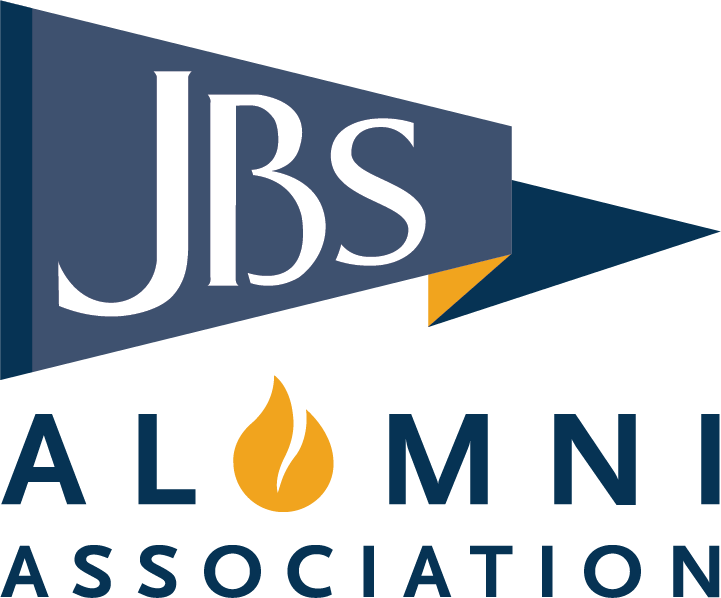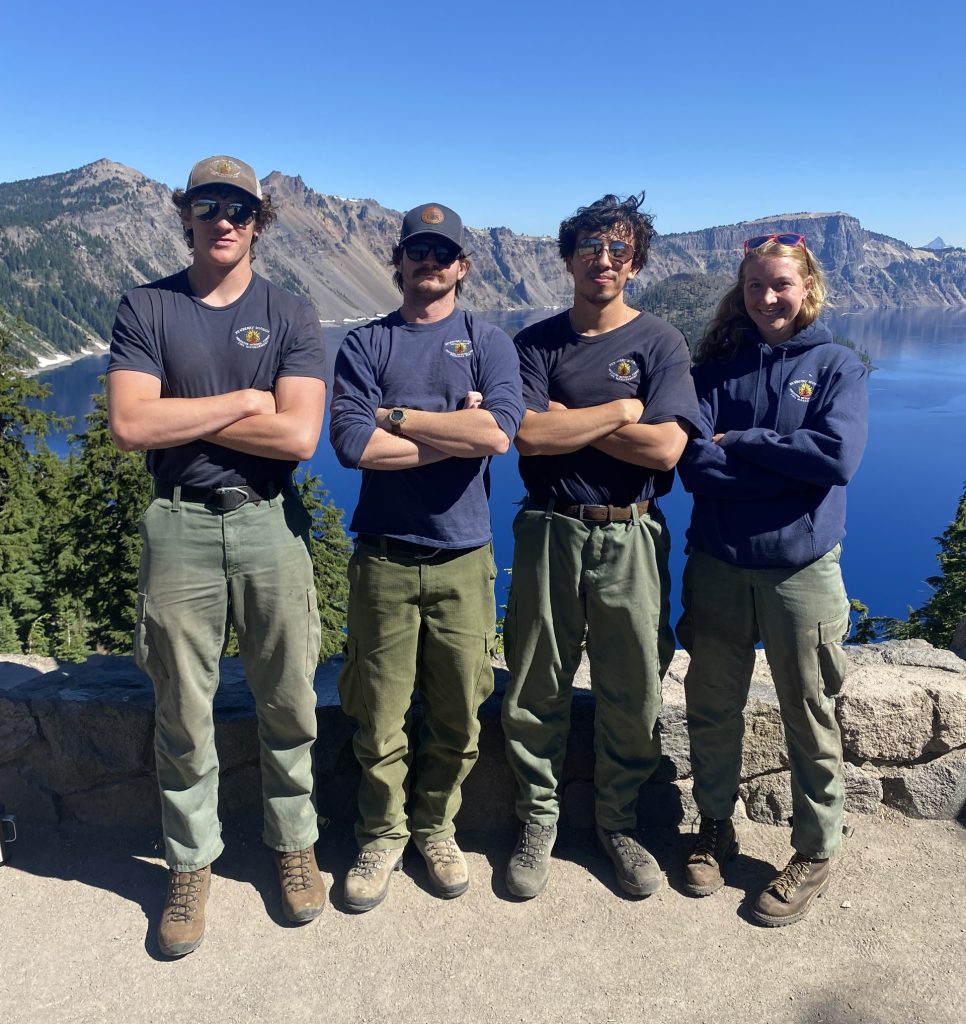Wildland firefighter Sam Schnabel ’12 works to protect communities and restore ecosystem balance through strategic fire management.
In the rugged landscape of Central Oregon’s high desert, Schnabel plays a vital role in protecting both human communities and natural landscapes. As an assistant engine captain in the Bend-Fort Rock Ranger District of the Deschutes National Forest, Schnabel’s work reflects the complex and critical role of modern wildland firefighters in an era of increasing environmental challenges.
"By reintroducing planned, low-intensity fire to the ground and removing the excess brush that has built up as a result, we can mitigate the effects of climate change and further wildfires."
Sam Schnabel '12
His journey to firefighting is rooted in a deep connection to public lands and environmental stewardship. After graduating from Washington University in St. Louis with a degree in environmental policy, he brought his academic background and hands-on experience as a ranch hand in Montana, an AmeriCorps intern in Colorado, and even as a student volunteer at Drey Land to the demanding world of wildfire management.
He adds: “I use the lessons I learned at Burroughs almost every day in this line of work, from the leadership skills I picked up as a track team captain under coach Daniel Harris, to the art of communication we learned in the classrooms of John Pierson (Chair, Performing Arts) and on the stage with Wayne Salomon (Performing Arts, retired).”
A Multifaceted Approach to Fire Management
Schnabel’s firefighting career began in 2016 as a fire lookout for the Okanogan-Wenatchee National Forest, manning the Mt. Bonaparte lookout tower in rural Washington. After a season of calling in fires and working on a fire engine, he moved to Bend and started as a temporary firefighter in 2017, gradually advancing to his current role as assistant engine captain.
Modern wildland firefighting reaches far beyond emergency response; it requires a multifaceted approach to fire management that extends well beyond summer fire suppression. During shoulder seasons, he focuses on prescribed burns and reducing the vegetation that can be ignited and burn
“Both approaches are instrumental to restoring healthy ecosystems,” he explains. “A century of aggressive fire suppression has robbed most forests across the western U.S. of a naturally recurring fire regimen. By reintroducing planned, low-intensity fire to the ground and removing the excess brush that has built up as a result, we can mitigate the effects of climate change and further wildfires.”
A Changing Landscape
Central Oregon presents a unique and challenging environment for firefighting. The region experienced its busiest fire season on record in 2024, demanding unprecedented interagency cooperation. Fires can range from a smoldering campsite log to thousand-acre blazes, requiring coordination with utilities and law enforcement.
As an incident commander, Schnabel oversees initial fire containment efforts and coordinates with larger management teams when more complex operations are needed. He also works closely with aviation and heavy machinery, adapting to the dynamic nature of wildland firefighting.
In 2024, Schnabel completed a short-term engine captain detail, introducing him to the field’s supervisory side.
“While challenging, it was really rewarding to work with new firefighters and provide mentorship at an early stage in their careers,” he says.
A National Perspective
Schnabel’s professional experience spans far beyond the local landscape — he and his crews have been dispatched to fight fires in a range of environments, from the Arctic Circle in Alaska to the varied terrains of South Carolina, Washington, California, Arizona, and New Mexico. These experiences highlight the national mobilization of wildland firefighters during critical fire seasons, where teams are deployed across vast distances to combat emerging threats.
Beyond his operational role, he also advocates for his fellow wildland firefighters, raising awareness about wage disparities within fire services and drawing attention to retention challenges.
Schnabel represents a new generation of environmental stewards — public servants who understand that protecting communities and preserving natural landscapes are intrinsically linked.
This article was adapted from the February 2025 edition of our Alumni Newsletter.
ALSO IN THIS ISSUE

From Burroughs to the Burn Zone
Wildland firefighter Sam Schnabel ’12 works to protect communities and restore ecosystem balance through strategic fire management.

Honoring the Past, Connecting the Present
The Alumni Office has launched a new Senior Alumni Engagement & Connection Initiative to support and celebrate our alums from the 1930s, 40s, 50s, and 60s.

